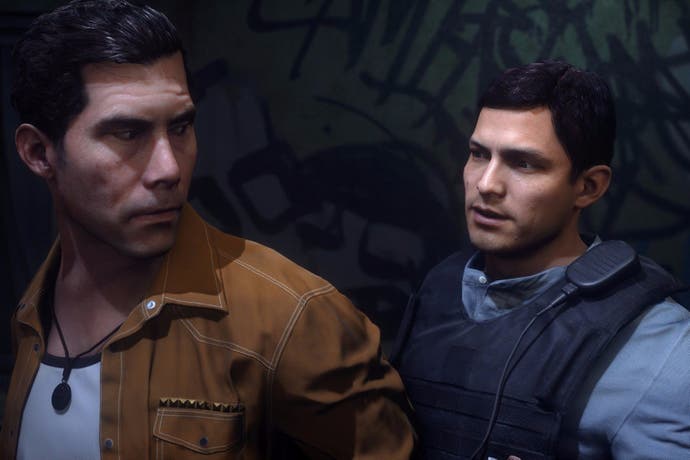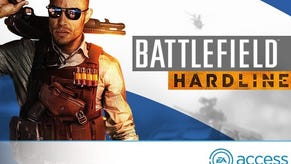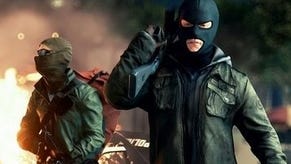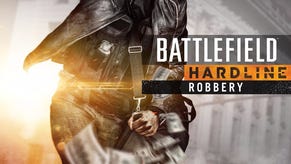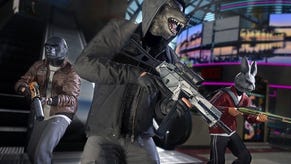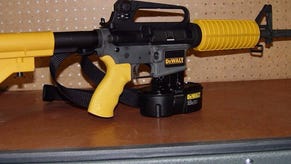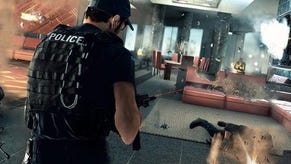Battlefield Hardline's disappointing campaign is more Bad Boys than The Wire
Watcha gonna do?
Editor's note: This is an early impressions piece, based on completing Battlefield: Hardline's campaign. Our full review will be up once we've played the multiplayer on fully stressed servers.
Experience has taught us not to jump the gun when it comes to online games these days. As such, our full review of Battlefield Hardline will be here next week, once we've spent some serious time in the game's multiplayer modes on post-launch public servers. That, at least, offers the opportunity to dig into the campaign mode to see how it translates DICE's military milieu to a more domestic cops and robbers setting.
Given that American police forces increasingly look and behave more like an occupying army than a civil service the leap isn't quite as dramatic as you might think, but the first few of the game's ten single player missions still feel like a change of pace.
We're in the boots of Nick Mendoza, a Cuban-American detective recently transferred to the Miami drugs squad - and, yes, there's a Miami Vice gag early on. To begin with, the game makes the most of its law enforcement backdrop, as you work with a partner on a seemingly routine drugs bust, and later take a journey through the shady side of town that could come from an episode of The Wire.
One of the key things you learn during these introductory stages - and one of the key differences from the previous Battlefield titles - is that this is as much of a stealth game as it is a shooter.
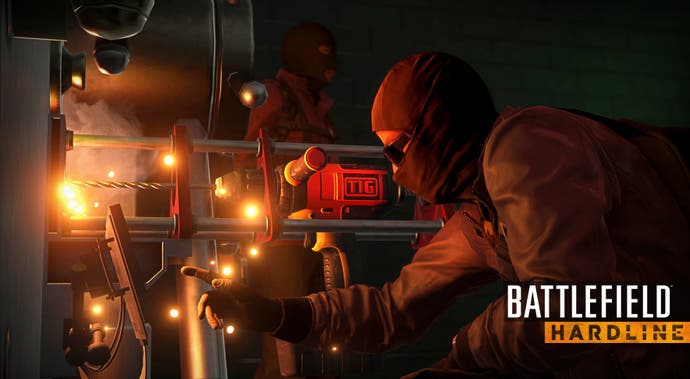
Despite what the headlines might tell you, in Hardline's world - if sadly not the real world - you can't just start shooting willy nilly. Conking an unaware enemy on the head is one way to get past them, but you'll gain more Expert Points - the currency that unlocks up to 15 tiers of weapons and bonuses - for performing an actual arrest.
This is Hardline's best idea in single-player. When you're close enough to an enemy, you can flash your badge and order them to freeze. You can then move in to manhandle them to the floor and cuff them. Things get trickier when there are multiple criminals to manage. You can get up to three enemies to drop their weapons and put their hands up, but you'll then need to keep them under control by pointing your gun at them before arresting them one by one. If you have a partner with you, they'll step in and help. It's in these moments, as you control a situation without firing a shot, that Hardline feels most like a cop simulator.
It's a mechanic that quickly grows tired however, thanks to some half-hearted level design, some very poor AI and a general lack of life that means you'll go through this routine for the vast majority of enemies in the game, and after a while their willingness to immediately drop their guns when challenged rather than chancing a shoot-out becomes oddly endearing. Even more hilarious is the fact that once cuffed, enemies immediately fall asleep - complete with little cartoon "Zzzz" text - presumably since the game lacks any mechanism that might allow enemies to free each other. Indeed, throughout the game they rarely exhibit any behaviour that might challenge you to play smarter.
Enemies will stand in positions clearly intended to create takedown opportunities. You can toss empty shell casings to lure groups apart, but that's rarely necessary since they're so obliging in their lack of spatial awareness. Most of the time, it's easy to see the patterns and the order in which takedowns can be easily achieved. Even then, their almost total lack of peripheral vision means that you often feel like you're gaming the system rather than outsmarting actual bad guys, as you wrestle someone to the ground only a few metres away from their companion, who is utterly oblivious.
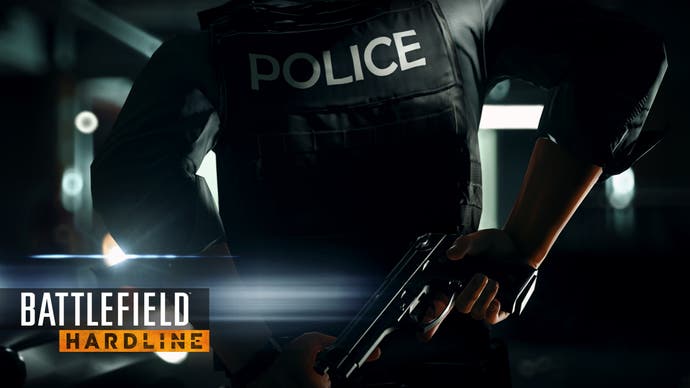
Things become even more ridiculous with your AI partner, who is literally invisible to enemies lest their wayward pathfinding blows your cover as they skitter around looking for somewhere to hide. That's if they're not deciding that your cover spot is where they want to be, shoving you out into the open as they take up position.
What's especially disappointing is how lifeless the game feels, considering the supposed power of the Frostbite engine. Most levels are incredibly linear, with doors that close behind you and cannot be reopened ensuring you're constantly moving forwards. More egregious is the overuse of our old friend the invisible and meaningless boundary, which gives you ten seconds to get back to where you're supposed to be. It's crude design, and leaves you feeling more like a herded sheep than a cop on a mission.
When the bullets do start to fly - either because you mess up a takedown or because the script forces you into a shoot-out - the gunplay feels looser, more chaotic than the military Battlefields, as the setting favours frantic confrontations over strategic engagements. You'll gain access to a surprising arsenal over the course of the campaign (are laser trip mines really standard cop issue?) but it tends to cluster around the pistol, shotgun and rifle end of the range. It's fun, in a cathartic sort of way, but it leaves little room for improvisation or player finesse.
What is very noticeable is how the tone of the game shifts. Without getting into spoiler territory, there are some plot twists - admittedly some pretty obvious plot twists for anyone who has ever watched a cop movie or TV show - and by the halfway mark, the story has veered sharply away from the urban raids and stakeouts for more traditional action movie type scenarios. Locations range from abandoned schools to the Florida wetlands and swanky Hollywood mansions. There's even one narrative diversion in particular that feels completely random, more like an outtake from Trevor's storyline in GTA5 than an organic part of this story.
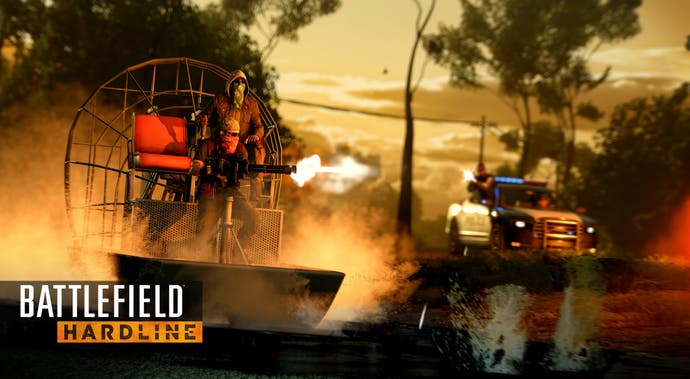
There's no campaign co-op, and your only incentive to replay missions is to track down evidence for Case Files to take in criminals with outstanding warrants. The first of these is typical FPS busywork of the "find the intel" school. The game even gives you a scanner which not only buzzes when close to a collectible, but points you to where it can be found, where it glows green. Each piece of evidence goes towards solving a Case File, but there's no investigation required. Find all the pieces for a case, and it's considered closed with no further input from you.
The warrants are more interesting, and the closest the Hardline campaign comes to shaking things up. Each stage includes enemies who are wanted for other crimes. Scan these, confirm their identity and then take them down rather than killing them, and you earn a hefty 1000 Expert Points. It adds a welcome wrinkle to certain encounters, forcing you to be extra careful not to let things descend into a shoot-out, but since takedowns are so easy it's never as game-changing as it could be. For what it's worth, I maxed out at Expert Level 15 around three-quarters of the way through the story.
Single player has always been an awkward beast where Battlefield is concerned and Hardline's campaign certainly isn't the reason most people will be buying the game. That doesn't make its perfunctory nature any less disappointing, though. There are glimpses here of ideas that could have really made for a unique spin on a tired genre, but those ideas are either underdeveloped, as in the Case Files, or else hamstrung by the game's stodgy AI and linear nature.
What the campaign is good for is unlocking a hefty selection of Battlepacks - the blind bagged power-ups that send you into multiplayer action with additional perks, or supply new patches and camos for your weapons. That side of the game, based on a few days of early access play, already seems more promising.
